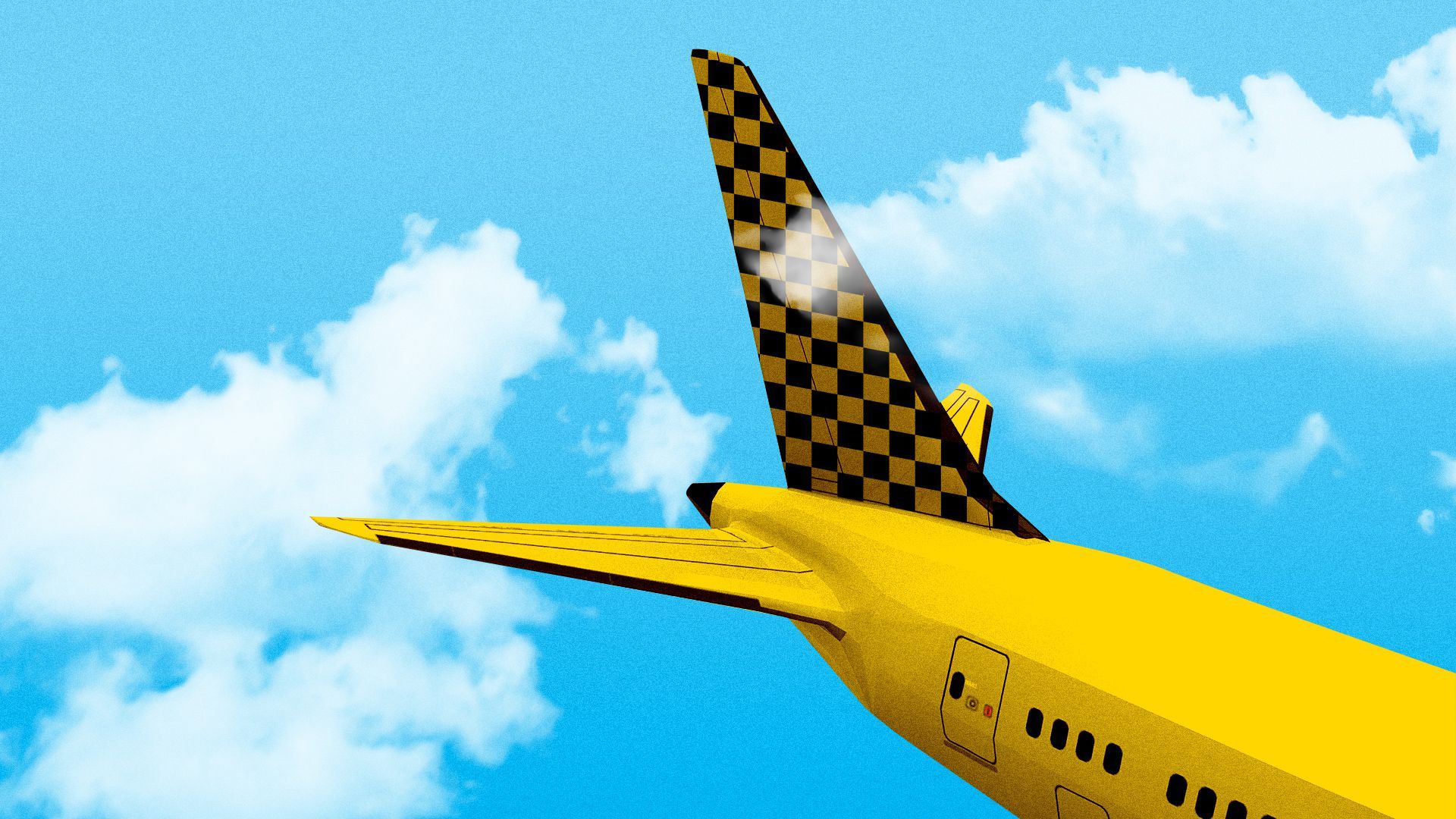Blade takes electric flight to the public markets
Add Axios as your preferred source to
see more of our stories on Google.

Illustration: Aïda Amer/Axios
Blade, a short-distance aviation company best known for helicopter rides from airports to city centers, agreed to go public via a reverse merger with a special purpose acquisition company (SPAC) affiliated with KSL Capital Partners.
Why it matters: Blade wants to become the first publicly traded company to offer electric vehicles in the air.
- It doesn't plan to own electric planes, just like it doesn't own its helicopters, but rather provide the physical and digital infrastructure for manufacturers and pilots — kind of like the core Uber model.
- One manufacturer it's unlikely to work with, however, is eVTOL developer Joby Aviation, which just struck a deal to buy Uber's air taxi unit.
- KSL, via its private equity fund, owns Ross Aviation, a fixed-base operator with locations at 14 U.S. airports, including in Westchester, N.Y. Ross isn't formally included in the Blade deal, but the common ownership could help Blade get airport space to build infrastructure for landing helicopters and electric vehicles.
Details: The deal values Blade at $850 million, including a $125 million PIPE investment from an investor group that includes David Geffen and existing investors like Barry Diller. Directors will include former FAA administrator Jane Garvey.
- Blade had raised around $50 million in VC funding, most recently at a $140 million valuation in 2018, and also secured a PPP loan earlier this year.
- Once the reverse merger closes, Blade will trade on the Nasdaq under ticker symbol BLDE.
[Correction: An earlier version of this story said that Joby vehicles would appear exclusively on Uber's app. That was not accurate.]
